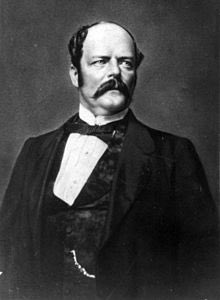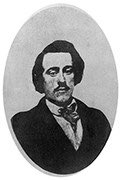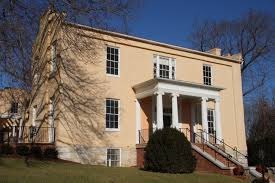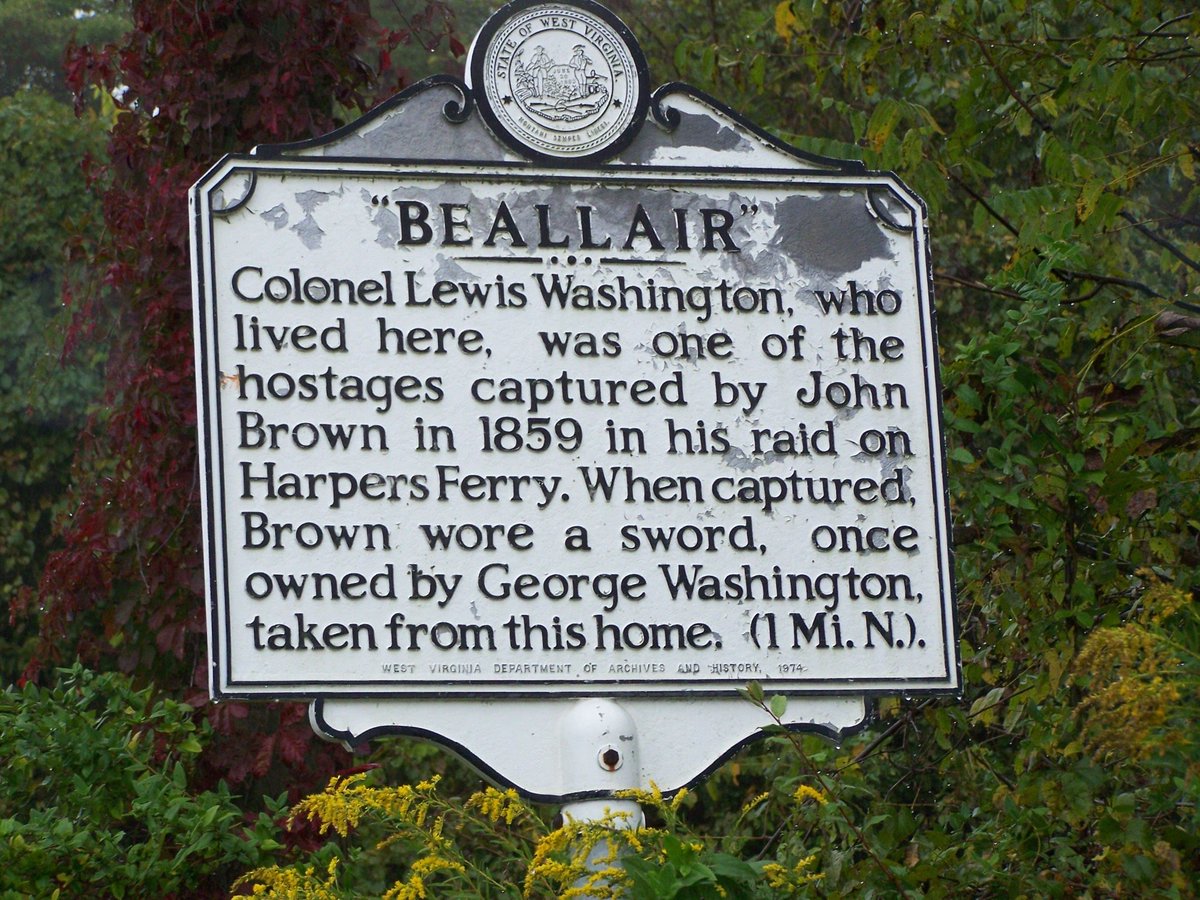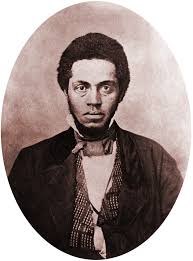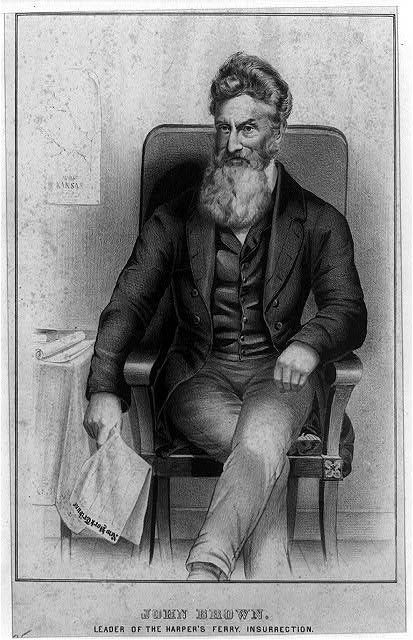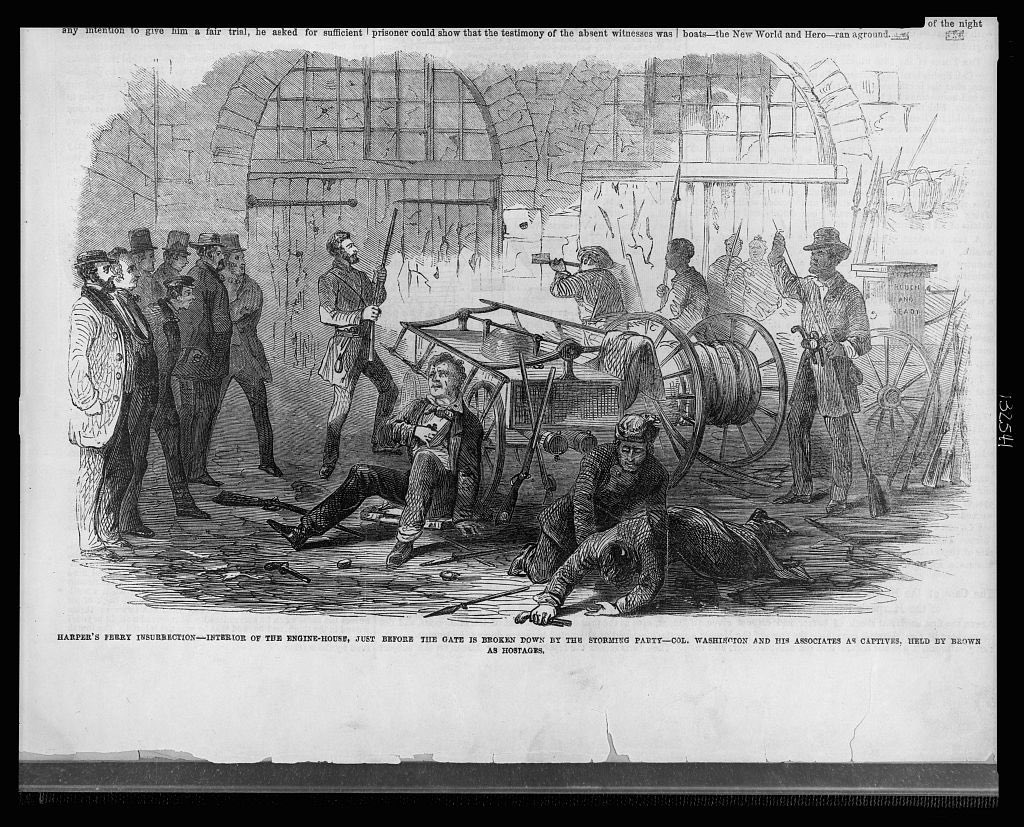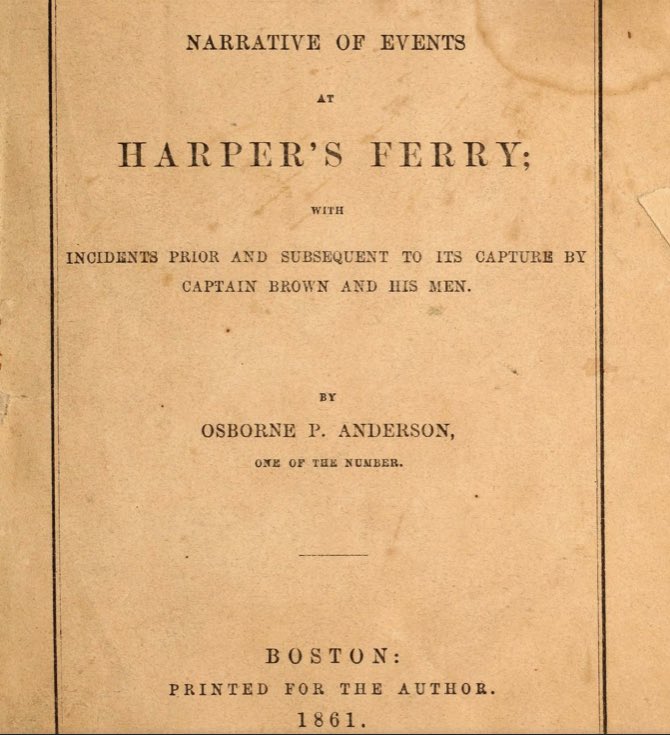One of my favorite twists of American history is that John Brown’s raiders took George Washington’s great-grandnephew Lewis Washington hostage. The whole episode is cinematic:
Colonel Lewis Washington was a Virginia slaver like his famous great-granduncle. One of Brown’s spies, John Cook, met him while scouting out slavers near Harper’s Ferry. The raiders were trying to trigger a insurrection, so knowing where nearby slavers were was key.
When Cook came scouting around Beall-Air, Washington’s estate, the colonel actually invited Cook into his house and showed him around. While there, Cook took interest in two George Washington relics: a sword from Frederick the Great and pistols from Lafayette.
Brown was excited about the symbolic potential of the Washington heir and heirlooms. So when the raid started, he sent Cook and others to kidnap Washington and take the sword and pistols.
With Cook was Osborne Anderson, a free Black abolitionist and Oberlin grad. Due to the writing skills Anderson had picked up as a printer, Brown recruited him to be recording secretary at his planning meetings.
Brown insisted that Anderson be the one who take the sword from Washington. “Anderson being a colored man, and colored men being only things in the South,” Brown told the team, “it is proper that the South be taught a lesson upon this point.”
Cook and Anderson successfully took Washington hostage and kept him on the firehouse in Harper’s Ferry. And they got the sword to Brown, who wore it during the raid.
The sword even may have saved Brown’s life. At one point, when an army lieutenant tried to stab Brown, his saber was deflected by Brown’s belt buckle carrying Washington’s sword.
Of course, the raid didn’t go as planned. Brown and Cook were captured and executed. But Brown’s raid, trial, and execution were a national sensation—and helped bring about the Civil War. If Brown had not survived the raid (thanks to Washington’s sword), it may not have happened.
Lewis Washington survived his kidnapping — and ended up testifying against Brown at his trial. He returned to his slaver estate, and the sword was eventually returned.
When the Civil War broke out, Colonel Washington joined up with the Confederacy. The Confederates were probably right to take up George Washington as their own. Washington, like his great-grandnephew, was a rich, southern slaver: the core constituency of the Confederate project.
Osborne Anderson was the only person who spent the entire raid with Brown to survive, and he retreated to Pennsylvania after the raid failed. He served as an officer in the Union army — and in 1872, he published a narrative of the raid.
I find the episode so special because it captures how much the Civil War is a second founding for America. It was a violent, righteous wrenching of the American story away from the white, southern planter class — away from America’s Washingtons and toward its Andersons.
(cc: fellow Virginian @jbouie, whose writing turned me on to the idea of the Civil War as a second American Revolution)

 Read on Twitter
Read on Twitter